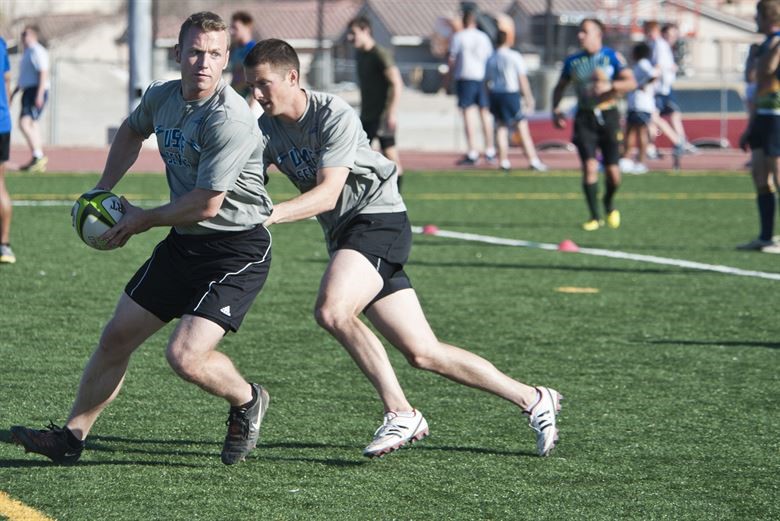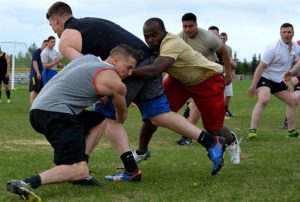If you want to improve your rugby game, you need to get serious. Serious about making changes to your nutrition and fitness that can really boost your performance. Here’s how:
1. What does your position need?
Do you need to work on your speed or improve your strength? Tailoring your training can reap dividends, so if you’re a prop, focus on weights and conditioning, while wingers need to work on their sprinting speed with interval training.
2. Mix it up
Just because you run on the pitch doesn’t mean you should train by running. Mix it up with strength and conditioning, aerobics, rugby training drills and wrestling drills to improve all-round strength and agility.
When you run add in acceleration and speed work, interval runs and then some middle distance work to keep it fresh and flexible.
3. Brace for the breakdown
That means core work and more core work, building flexibility and rotational strength and agility. Winning in collision areas is the key to winning the game, so focus on building explosive strength and power with the ability to stay low, twist and thrust.
4. Manage yourself
The season is a marathon, not a sprint so you need to know how to listen to your body and do what’s right when it comes to managing health and injuries.
If you want to Improve your health by playing rugby and get good at it with training drills found online at Sportplan, you need to stay functional with fitness levels and learn to take care of yourself.
5. Train for the worst, play for the best
It’s unlikely that you’ll be involved in full on play for more than three minutes at a stretch. However, the best teams train with four-minute drills that prepare them for anything that happens on the pitch.
6. Short and sharp
The days of amateur training with long runs and little else are over. Intense sessions of short, sharp exercise using a mix of drills gets the job done far more effectively.
7. Focus on nutrition
Making smart nutritional decisions is the fast way to gaining power without gaining weight.
Eat clean, with plenty of lean meat and protein and drink plenty of fluids. And don’t view carbs as the enemy – at the right time, they’re essential recovery fuel.






